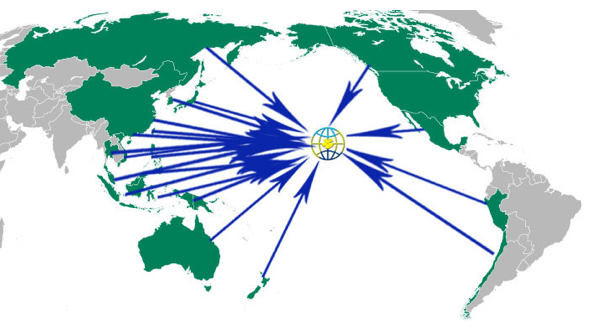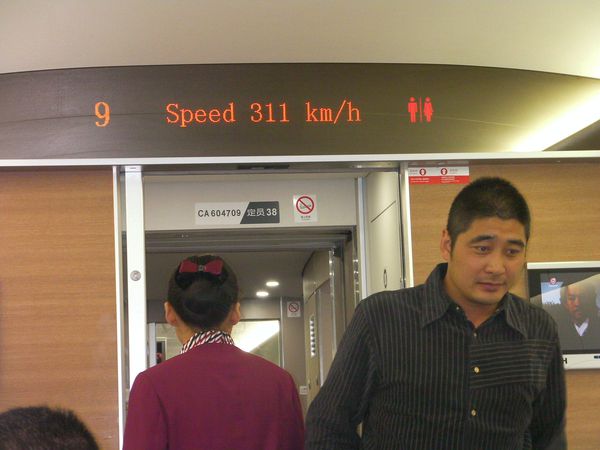L'article commandé par L'Institut de Sciences sociales de Fudan vient de paraître dans la revue Social Outlook, Shanghai :

法国IRIS研究员Fabienne
Clérot
无休止的欧洲主权债务危机在各种力量的平衡之下,出现了一个意义重大的变化:世界上最富裕的区域欧洲,向世界上最大的发展中国家中国寻求帮助,这比法国总统萨科齐向胡锦涛主席通电话请求援助,更能说明世界重心正从西向东转移?
在日益全球化的当今世界,一个经济体的麻烦变成了每个成员的问题,我们要面对同一个未来。在此背景下,中国会是欧洲危机的解铃人吗?看起来中、欧双方都面临两难。
帮助欧洲的理由
中国有无数个明显的理由可以帮助欧洲。
——欧洲是中国第一大商业伙伴,第一大出口市场。中国帮助深陷危机的欧元区一大动因就是两个经济实体存在着大量的贸易。为了中国的出口,以及中国未来数月的经济发展,中国很有必要出手阻止欧洲陷入衰退。尽管中国正在转变其经济模式,但仍然要依赖出口。欧元区长期的经济混乱,对世界经济走势不利,对中国经济也会有负面影响。
——不要把鸡蛋放在同一个篮子里。中国是美国的最大债权国,中国外汇储备的70%是美国政府票据、债券和其他美元资产。中国需要分散其投资,调整其外汇储备(3.2万亿美元)的组成结构。因此,中国需要一个能与美元抗衡的有生机的欧元。中国已经在欧洲投资了大量基金,拥有估计四分之一的以欧元计价的资产。对中国而言,有必要通过帮助欧洲确保其资产的安全。
——维持三角关系的平衡。欧洲已经被视为中美关系的“调和器”。如果没有欧洲,中国必须直接面对美国。美国正在亚洲-太平洋地区寻求21世纪的“新生力量”(second wind),亚太地区关系的日趋紧张,使中美之间有可能面临冲突。
——提升中国权益。中国的无条件援助政策引人瞩目(坚持“一个中国”的原则除外),但在当前欧洲债务危机中,北京提供了一种互换“交易”,要求对以下三个条件,至少一种做出承诺:提高中国在IMF中的地位(接受人民币为特别货币提款权SDR账户货币篮子中的一员)、扩大中国在世贸组织中的权利(例如承认中国市场经济地位)、取消武器禁运等。
——扮演利益相关者。中国是世界第二大经济体,拥有大量外汇储备。如果不在拯救欧洲中扮演角色,会显得很“自私”。对欧洲的未来,中国不得不表示关切和承担自己的义务。但问题是,什么时候?如何帮助?帮助多少?
现在不是时机
事实上,中国拯救欧洲面临很多阻力。中国老百姓不想救“富人”,中国仍然是个发展中国家,中国人很难理解和接受他们的政府去拯救遥远的富裕的欧洲人。中国人认为他们努力工作,为累积全球最大的外汇储备做出了重大牺牲。在帮助他人之前,中国还有很多自己的问题需要解决。中国人没有忘记外国势力在19世纪对他们的殖民统治。帮助 “掩藏债务”和“不负责任”的欧洲,很难理解而且会激起民愤。
欧洲人也对中国人可能的帮助充满抵触。当法国总统萨科齐公开宣布他将向中国寻求帮助的时候,绝大多数政治反对派和一大批法国人很担心,“欧洲正在丧失主权”,“中国要买下整个世界”。最近中国在欧洲比如希腊和法国的资产投资,欧洲民意反应强烈。很多法国公民认为,是中国导致了欧洲的衰败,“抨击中国”的字眼在绝大多数西方媒体中传播。
欧元区对不断抛出的权宜拯救方案缺乏信心,欧洲正在面临领导力和公信力的危机:前希腊总理对欧洲援助计划提议公投的决策令人惊讶,法国总统萨科齐和德国总理默克尔的分歧等等,都让人头疼。欧洲自身可用的资源,不足以让意大利、西班牙和法国的主权信用摆脱风险。更有甚者,欧元集团主席容克最近指出,德国的债务水平也值得担忧。
中国领导人在决定是否帮助欧洲的时候,要求更多细节和承诺。中国政府不得不确保投资的安全,之前中国在海外风险投资上曾经尝到过苦头。
中国外汇储备的数额很可观,但事实上可用于投资欧洲的数字并没有那么多。中国将大多数资金已经用在了投资长期资产上,这些资产如果迅速大量抛售可能引发全球金融市场恐慌。还有一部分储备被谨慎保留,用作应付难以预料的国内紧急状况的准现金工具。
现在不是中国提附加条件的好时机。欧洲分裂日渐加剧,而且专注于解决自身危机,没有机会对武器禁运和市场经济地位达成一致意见。是中国故意提出一个欧盟无法接受的条件,促使欧洲拒绝来自中国的帮助,避免中国对欧洲的请求说“不”?中国似乎并不情愿在中国的债务危机中发挥作用,而且现在有了一个不采取行动的正当理由。
欧洲必须对危机承担责任,不能依靠乐善好施的人来拯救欧洲。中国的金融支持在短期内是有积极效果的,但可能会阻止欧洲进行果断的改革,而且这样的拯救只能让危机暂缓,从而阻碍深层次的结构性变革。
欧洲一旦着手预算和政治上的改革,中国可能通过IMF心甘情愿地为欧洲提供金融支持来度过难关。另一个选择是欧洲借人民币,如果中国相信欧洲能这么做,为了增强实力获得影响力,中国将会设法利用欧盟经济危机为自己谋求利益。
设想欧洲的将来
在金融危机之下,欧洲面临着政治危机。金融和经济危机正在改变我们的政治制度,使西方民主遭遇挑战,技术官僚和银行家上台成为欧洲领导人,他们将“重新恢复对市场的信心”。新上任的希腊总理卢卡斯•帕帕季莫斯先生,是欧洲央行前任副行长,意大利新任总理马里奥•蒙蒂先生是前任欧盟执行委员,不隶属任何政治党派。帕帕季莫斯、蒙蒂,以及新任央行行长马里奥•德拉吉都属于“欧洲高盛政府”(他们都曾经在高盛任过职),很多欧洲人认为,“高盛政府”意味着“民主是通往钱财的金光大道”。
越来越多丧失希望和失业的欧洲人,他们对欧洲理想的支持是有限度的。罢工、激烈的抗议游行,反资本主义和反全球化运动将席卷整个欧洲。极端主义者、国家主义者和民粹主义派必定会在整个欧洲的下一届大选中获得席位,很明显包括法国的极右派国家阵线(Front National)
意大利和西班牙将走希腊的道路,法国处在主权信用被降级的危险边缘,欧元区的未来处于险境,至少有三种可能的境况:
——联邦制的欧洲。为了保护欧元,我们需要联邦制的欧盟。德国人可能不得不重新考虑欧洲央行的作用。
——欧元区瘦身。一些国家将离开欧元区,形成一个更小的以德国为中心的欧元区。
——欧元区解散。一些经济学家认为,我们可以用一个共同货币来替代单一货币。欧元仍然用于国际间的交易,但国家货币将在欧洲内部恢复使用。这样一种体制将允许更弱的南欧国家货币贬值,重新获得竞争力。这个结果不太切合实际,但可能最终是欧元死亡的前奏。
这17个国家的欧元区,更宽泛点说,欧盟,正处在世界银行行长罗伯特•佐利克最近所说的“引爆点”上。在全球化的世界里,在不确定的时间点,每个国家都可能引发连锁反应而备受关注,每个国家都应该负起责任。欧洲必须在清醒地回到现实,仅缓解危机的症状还不够,我们必须找到事发的原因。希望这个可怕的危机仅是欧洲时代结束的幻觉,但对欧洲来说,这确实是欧洲幻觉的结束。
(作者系法国国际与战略关系研究院(IRIS) 研究员,高艳平译)
http://www.guancha.cn/html/60271/2011/12/13/63053.shtml














